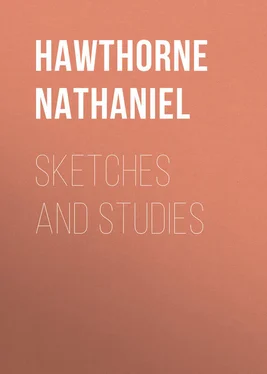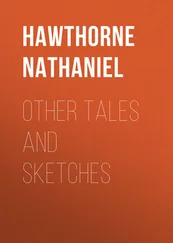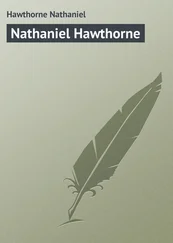Nathaniel Hawthorne - Sketches and Studies
Здесь есть возможность читать онлайн «Nathaniel Hawthorne - Sketches and Studies» — ознакомительный отрывок электронной книги совершенно бесплатно, а после прочтения отрывка купить полную версию. В некоторых случаях можно слушать аудио, скачать через торрент в формате fb2 и присутствует краткое содержание. Жанр: literature_19, foreign_antique, foreign_prose, на английском языке. Описание произведения, (предисловие) а так же отзывы посетителей доступны на портале библиотеки ЛибКат.
- Название:Sketches and Studies
- Автор:
- Жанр:
- Год:неизвестен
- ISBN:нет данных
- Рейтинг книги:5 / 5. Голосов: 1
-
Избранное:Добавить в избранное
- Отзывы:
-
Ваша оценка:
- 100
- 1
- 2
- 3
- 4
- 5
Sketches and Studies: краткое содержание, описание и аннотация
Предлагаем к чтению аннотацию, описание, краткое содержание или предисловие (зависит от того, что написал сам автор книги «Sketches and Studies»). Если вы не нашли необходимую информацию о книге — напишите в комментариях, мы постараемся отыскать её.
Sketches and Studies — читать онлайн ознакомительный отрывок
Ниже представлен текст книги, разбитый по страницам. Система сохранения места последней прочитанной страницы, позволяет с удобством читать онлайн бесплатно книгу «Sketches and Studies», без необходимости каждый раз заново искать на чём Вы остановились. Поставьте закладку, и сможете в любой момент перейти на страницу, на которой закончили чтение.
Интервал:
Закладка:
One of President Jackson’s measures, which had Pierce’s approval and support, was his veto of the Maysville Road Bill. This bill was part of a system of vast public works, principally railroads and canals, which it was proposed to undertake at the expense of the national treasury – a policy not then of recent origin, but which had been fostered by John Quincy Adams, and had attained a gigantic growth at the close of his Presidency. The estimate of works undertaken or projected, at the commencement of Jackson’s administration, amounted to considerably more than a hundred millions of dollars. The expenditure of this enormous sum, and doubtless other incalculable amounts, in progressive increase, was to be for purposes often of unascertained utility, and was to pass through the agents and officers of the federal government – a means of political corruption not safely to be trusted even in the purest hands. The peril to the individuality of the states, from a system tending so directly to consolidate the powers of government towards a common centre, was obvious. The result might have been, with the lapse of time and the increased activity of the disease, to place the capital of our federative Union in a position resembling that of imperial Rome, where each once independent state was a subject province, and all the highways of the world were said to meet in her forum. It was against this system, so dangerous to liberty and to public and private integrity, that Jackson declared war, by the famous Maysville veto.
It would be an absurd interpretation of Pierce’s course, in regard to this and similar measures, to suppose him hostile either to internal or coastwise improvements, so far as they may legitimately be the business of the general government. He was aware of the immense importance of our internal commerce, and was ever ready to vote such appropriations as might be necessary for promoting it, when asked for in an honest spirit, and at points where they were really needed. He doubted, indeed, the constitutional power of Congress to undertake, by building roads through the wilderness, or opening unfrequented rivers, to create commerce where it did not yet exist; but he never denied or questioned the right and duty to remove obstructions in the way of inland trade, and to afford it every facility, when the nature and necessity of things had brought it into genuine existence. And he agreed with the best and wisest statesmen in believing that this distinction involved the true principle on which legislation, for the purpose here discussed, should proceed.
While a member of the House of Representatives, he delivered a forcible speech against the bill authorizing appropriations for the Military Academy at West Point. He was decidedly opposed to that institution as then, and at present organized. We allude to the subject in illustration of the generous frankness with which, years afterwards, when the battle smoke of Mexico had baptized him also a soldier, he acknowledged himself in the wrong, and bore testimony to the brilliant services which the graduates of the Academy, trained to soldiership from boyhood, had rendered to their country. And if he has made no other such acknowledgment of past error, committed in his legislative capacity, it is but fair to believe that it is because his reason and conscience accuse him of no other wrong.
It was while in the lower house of Congress that Franklin Pierce took that stand on the slavery question from which he has never since swerved a hair’s breadth. He fully recognized, by his votes and by his voice, the rights pledged to the South by the Constitution. This, at the period when he so declared himself, was comparatively an easy thing to do. But when it became more difficult, when the first imperceptible movement of agitation had grown to be almost a convulsion, his course was still the same. Nor did he ever shun the obloquy that sometimes threatened to pursue the northern man who dared to love that great and sacred reality – his whole, united, native country – better than the mistiness of a philanthropic theory.
He continued in the House of Representatives four years. If, at this period of his life, he rendered unobtrusive, though not unimportant, services to the public, it must also have been a time of vast intellectual advantage to himself. Amidst great national affairs, he was acquiring the best of all educations for future eminence and leadership. In the midst of statesmen, he grew to be a statesman. Studious, as all his speeches prove him to be, of history, he beheld it demonstrating itself before his eyes. As regards this sort of training, much of its good or ill effect depends on the natural force and depth of the man. Many, no doubt, by early mixture with politics, become the mere politicians of the moment, – a class of men sufficiently abundant among us, – acquiring only a knack and cunning, which guide them tolerably well through immediate difficulties, without instructing them in the great rules of higher policy. But when the actual observation of public measures goes hand in hand with study, when the mind is capable of comparing the present with its analogies in the past, and of grasping the principle that belongs to both, this is to have history for a living tutor. If the student be fit for such instruction, he will be seen to act afterwards with the elevation of a high ideal, and with the expediency, the sagacity, the instinct of what is fit and practicable, which make the advantage of the man of actual affairs over the mere theorist.
And it was another advantage of his being brought early into the sphere of national interests, and continuing there for a series of years, that it enabled him to overcome any narrow and sectional prejudices. Without loving New England less, he loved the broad area of the country more. He thus retained that equal sentiment of patriotism for the whole land with which his father had imbued him, and which is perhaps apt to be impaired in the hearts of those who come late to the national legislature, after long training in the narrower fields of the separate states. His sense of the value of the Union, which had been taught him at the fireside, from earliest infancy, by the stories of patriotic valor that he there heard, was now strengthened by friendly association with its representatives from every quarter. It is this youthful sentiment of Americanism, so happily developed by after circumstances, that we see operating through all his public life, and making him as tender of what he considers due to the South as of the rights of his own land of hills.
Franklin Pierce had scarcely reached the legal age for such elevation, when, in 1837, he was elected to the Senate of the United States. He took his seat at the commencement of the presidency of Mr. Van Buren. Never before nor since has the Senate been more venerable for the array of veteran and celebrated statesmen than at that time. Calhoun, Webster, and Clay had lost nothing of their intellectual might. Benton, Silas Wright, Woodbury, Buchanan, and Walker were members; and many even of the less eminent names were such as have gained historic place – men of powerful eloquence, and worthy to be leaders of the respective parties which they espoused. To this dignified body (composed of individuals some of whom were older in political experience than he in his mortal life) Pierce came as the youngest member of the Senate. With his usual tact and exquisite sense of propriety, he saw that it was not the time for him to step forward prominently on this highest theatre in the land. He beheld these great combatants doing battle before the eyes of the nation, and engrossing its whole regards. There was hardly an avenue to reputation save what was occupied by one or another of those gigantic figures.
Modes of public service remained, however, requiring high ability, but with which few men of competent endowments would have been content to occupy themselves. Pierce had already demonstrated the possibility of obtaining an enviable position among his associates, without the windy notoriety which a member of Congress may readily manufacture for himself by the lavish expenditure of breath that had been better spared. In the more elevated field of the Senate, he pursued the same course as while a representative, and with more than equal results.
Читать дальшеИнтервал:
Закладка:
Похожие книги на «Sketches and Studies»
Представляем Вашему вниманию похожие книги на «Sketches and Studies» списком для выбора. Мы отобрали схожую по названию и смыслу литературу в надежде предоставить читателям больше вариантов отыскать новые, интересные, ещё непрочитанные произведения.
Обсуждение, отзывы о книге «Sketches and Studies» и просто собственные мнения читателей. Оставьте ваши комментарии, напишите, что Вы думаете о произведении, его смысле или главных героях. Укажите что конкретно понравилось, а что нет, и почему Вы так считаете.












